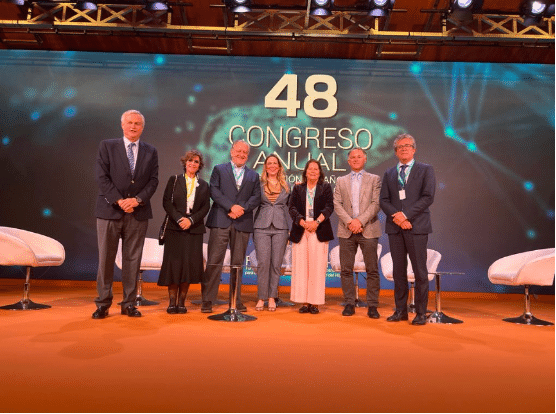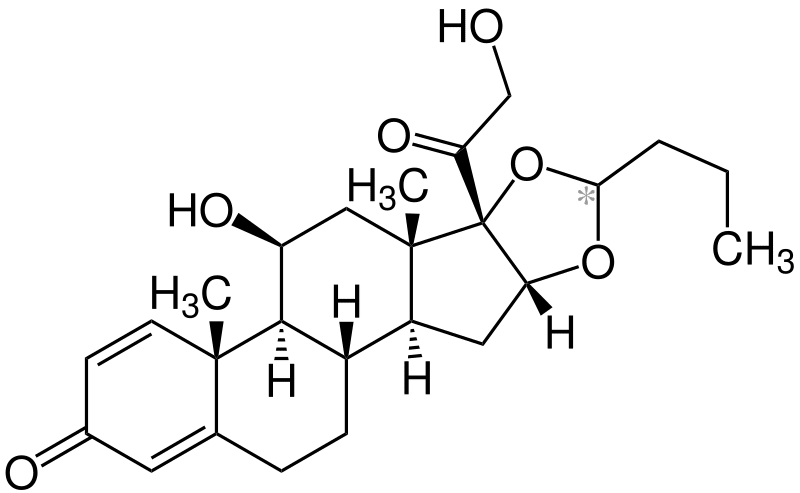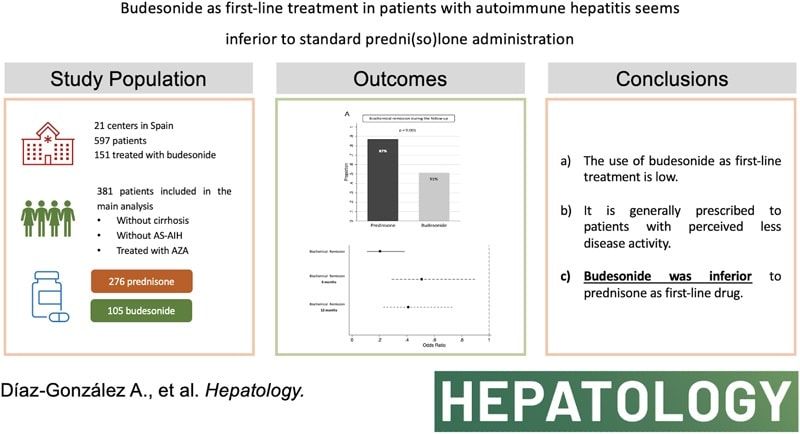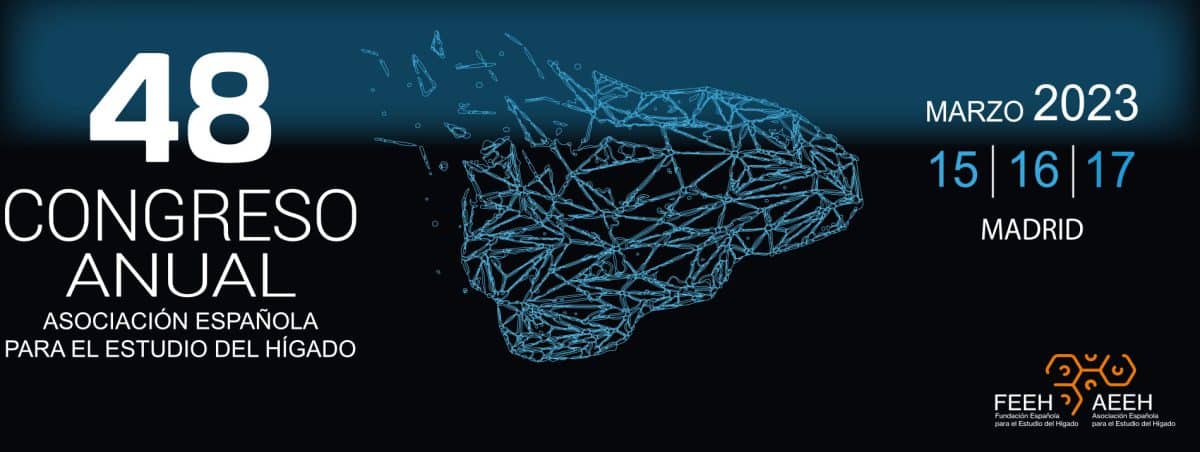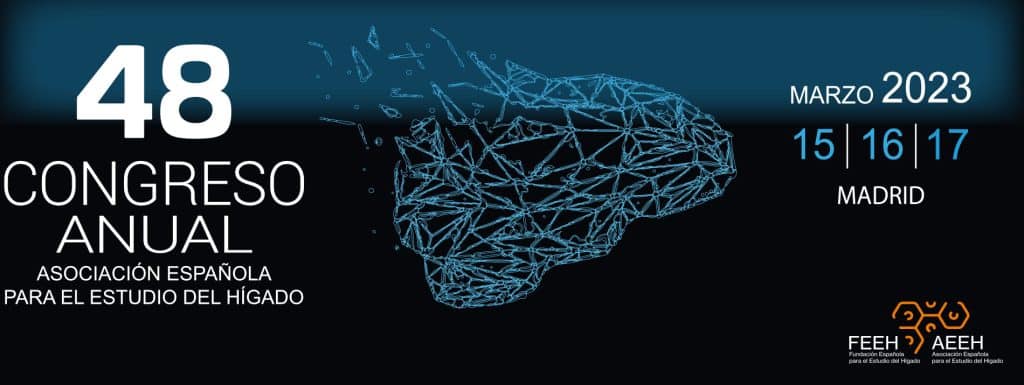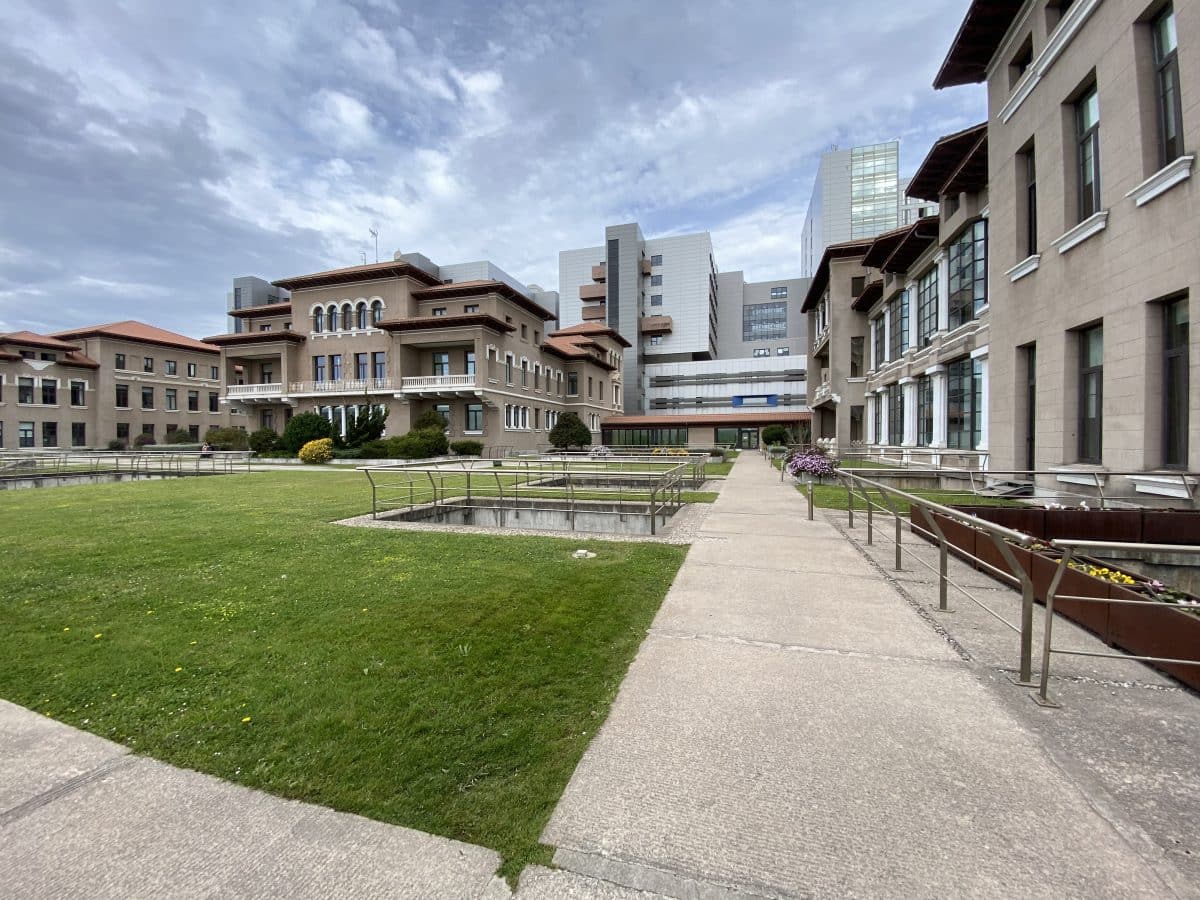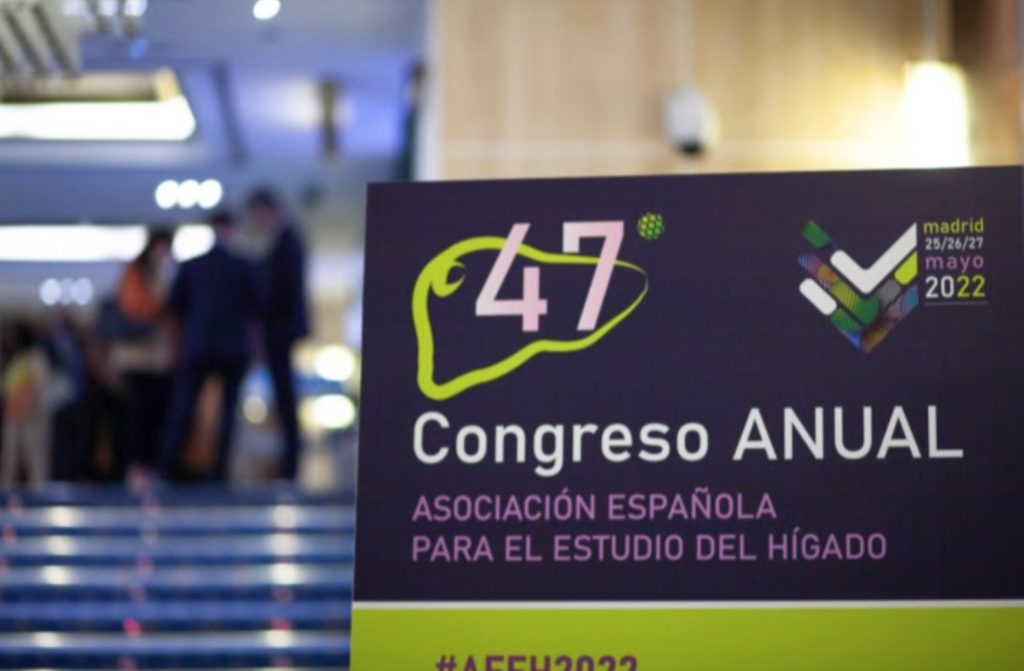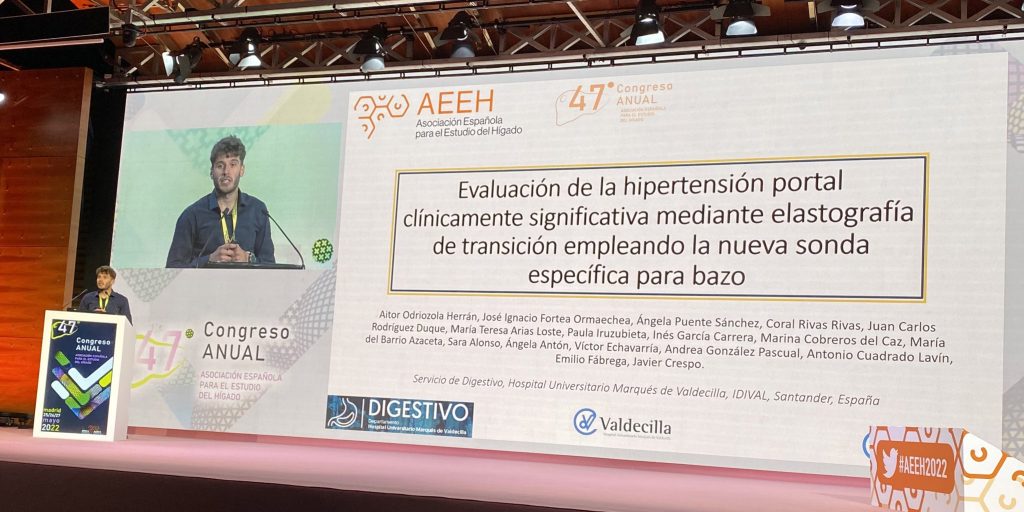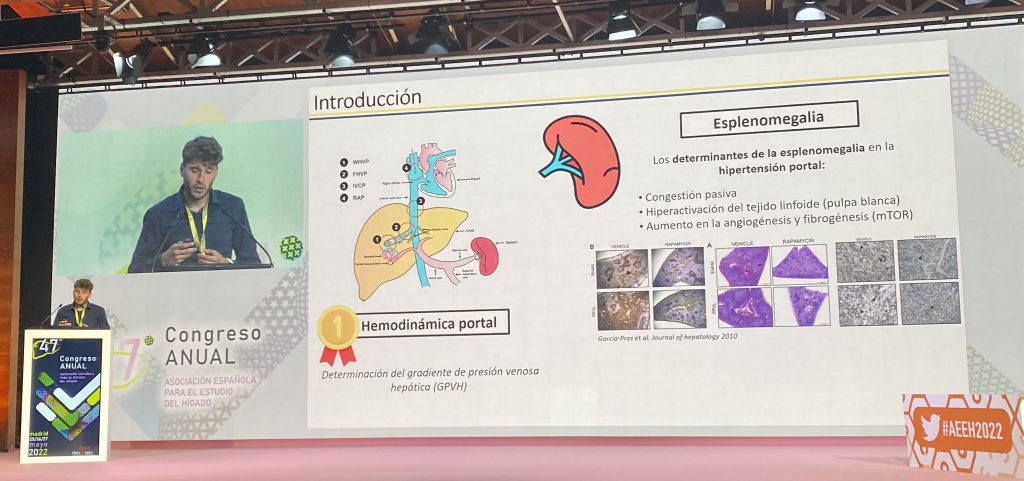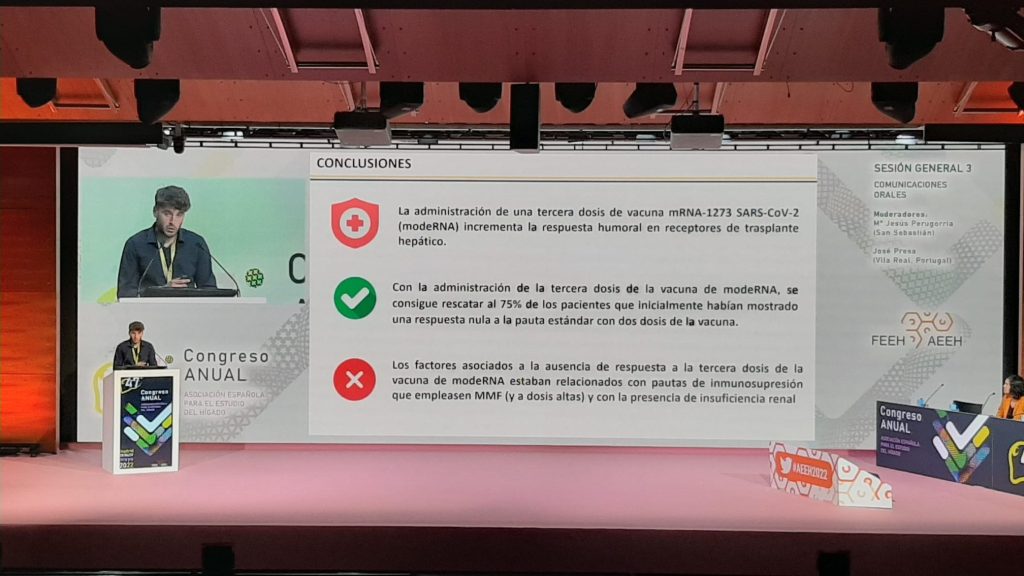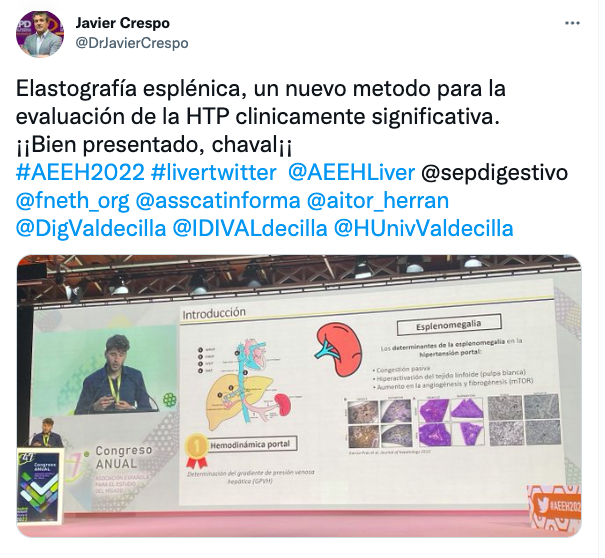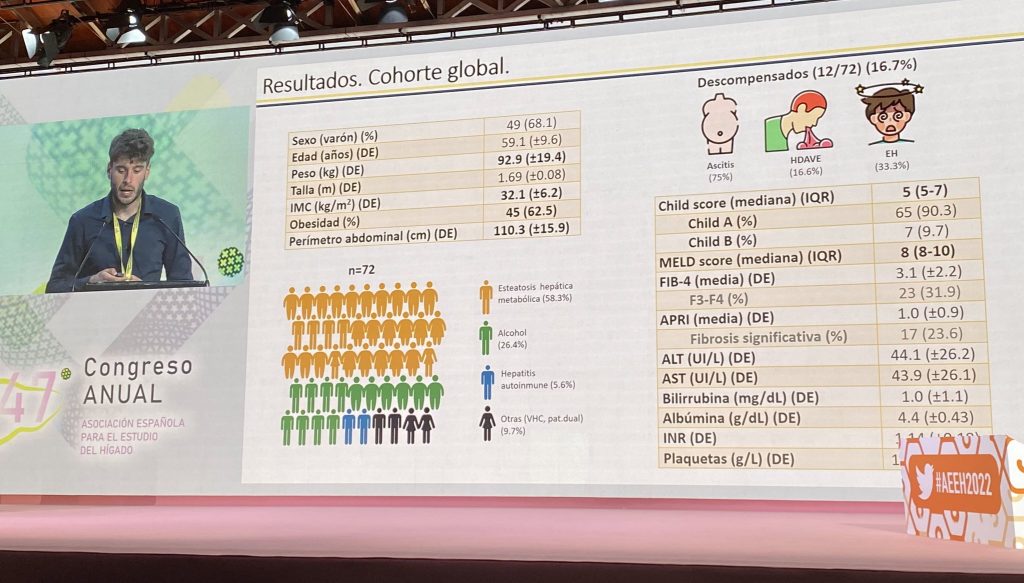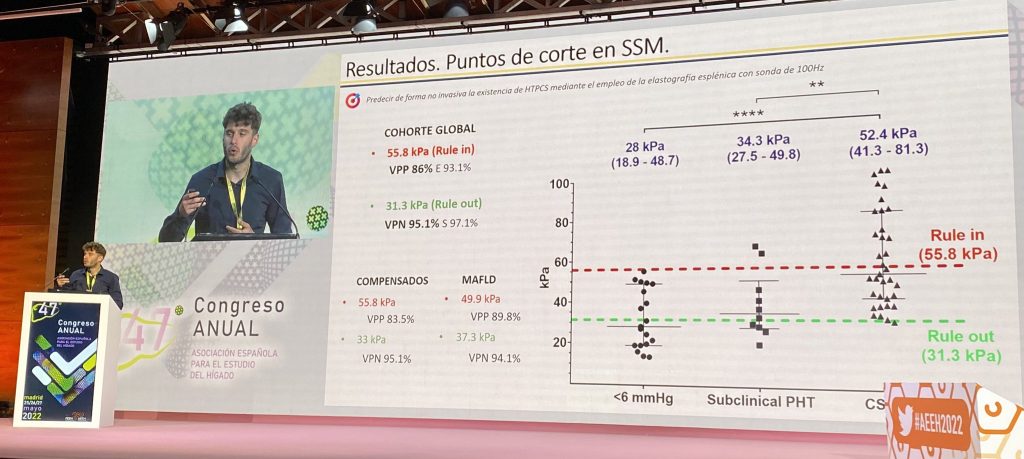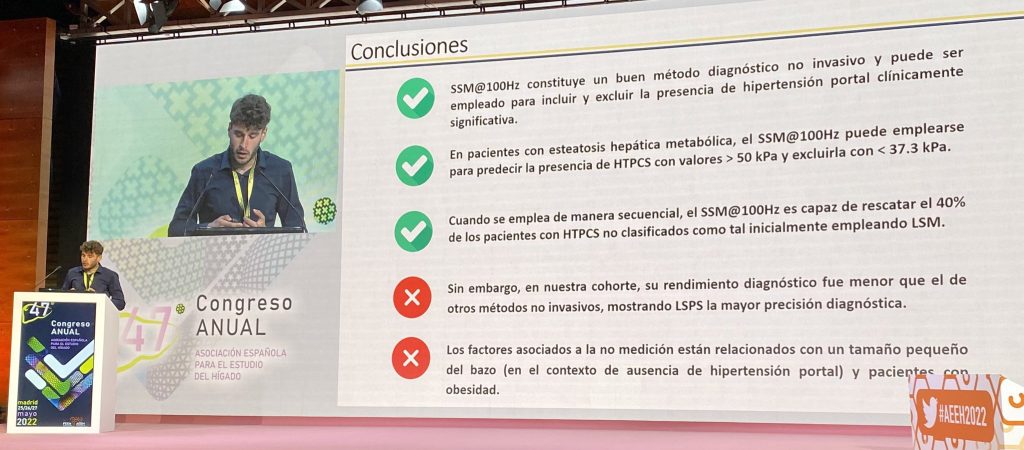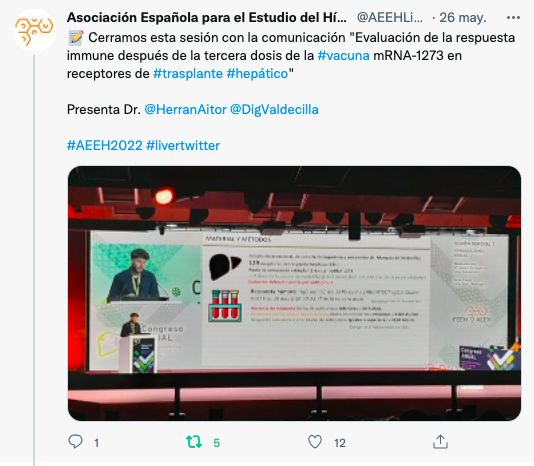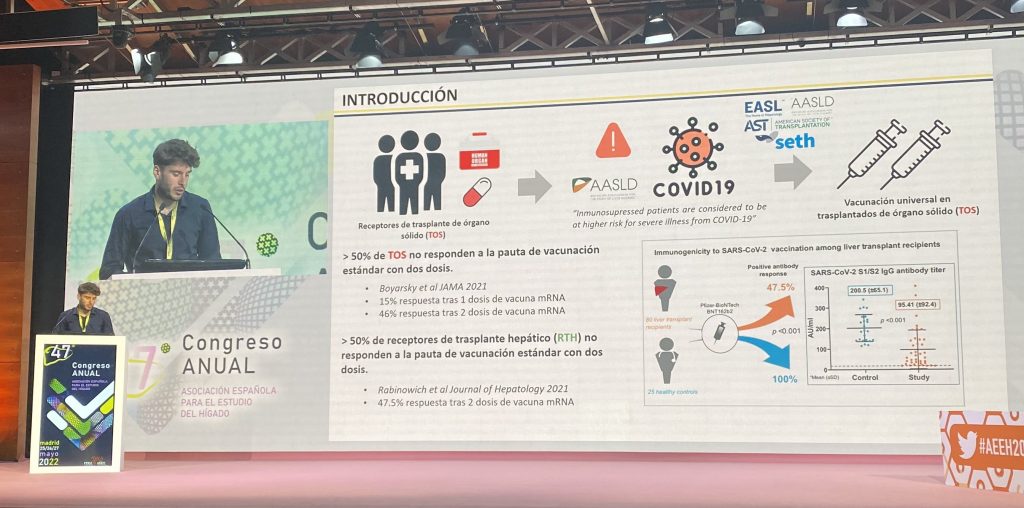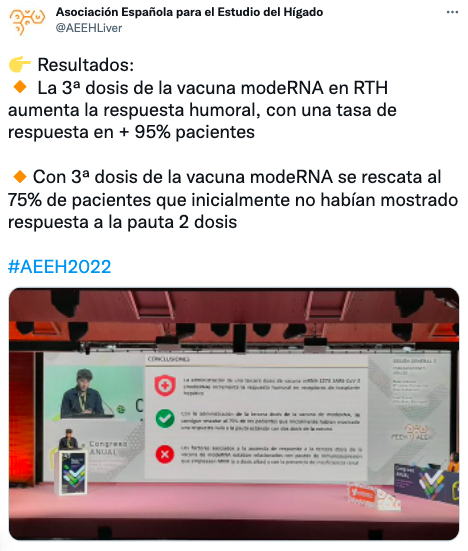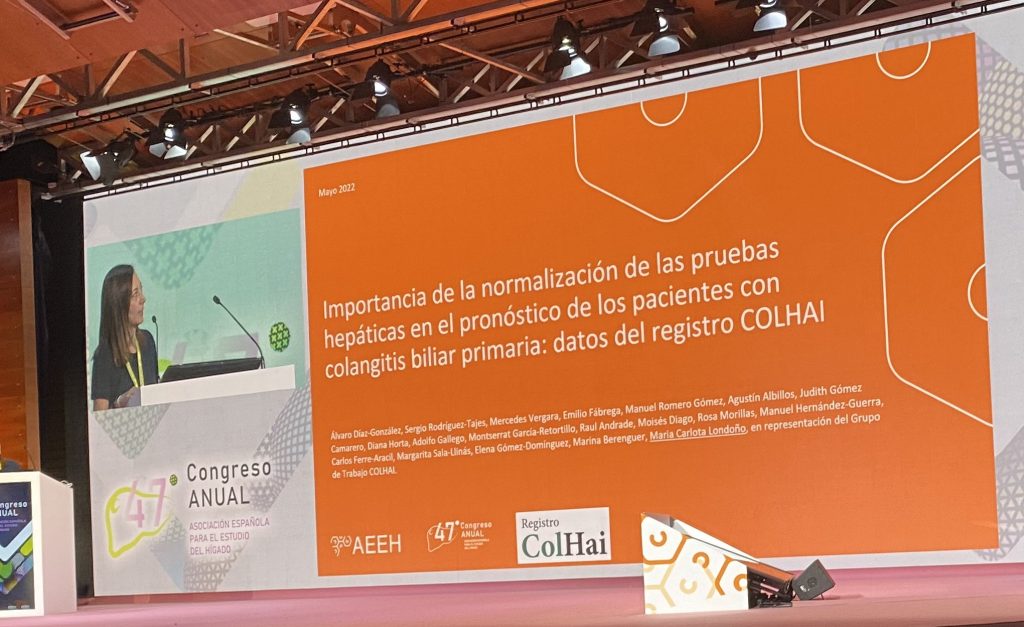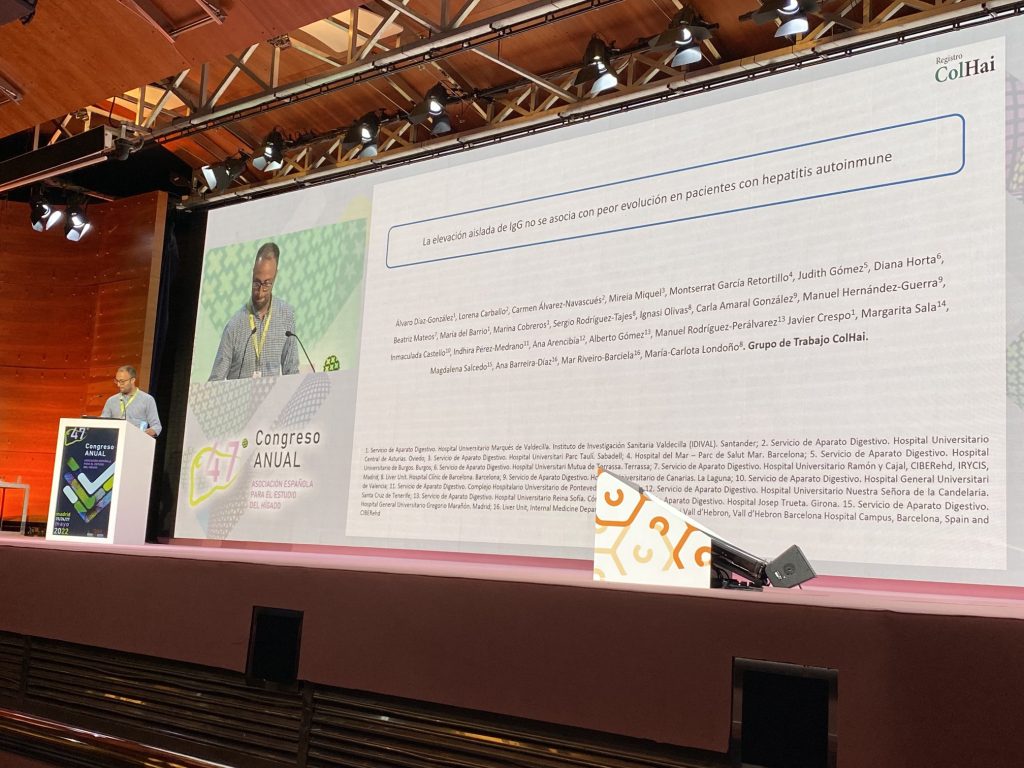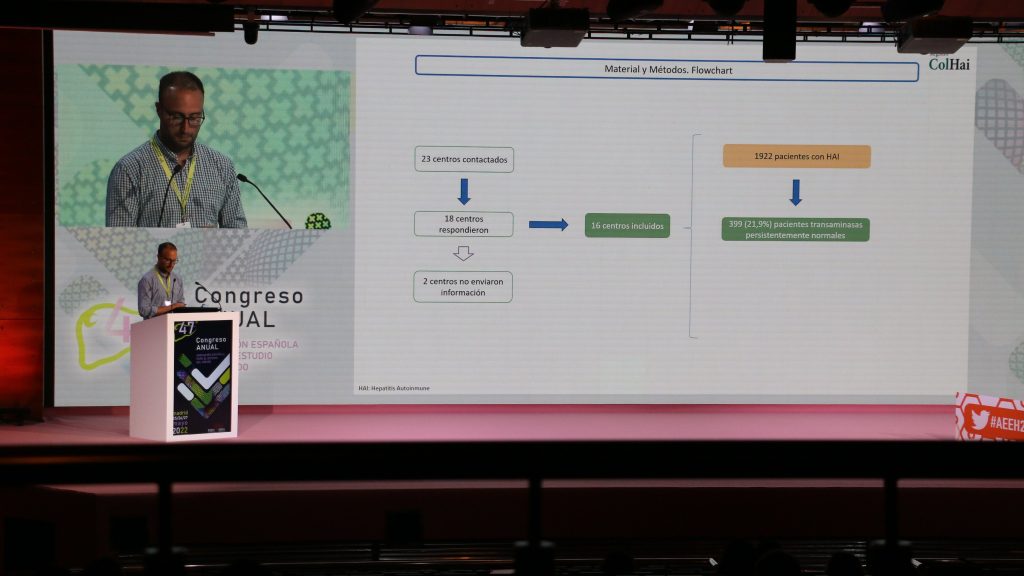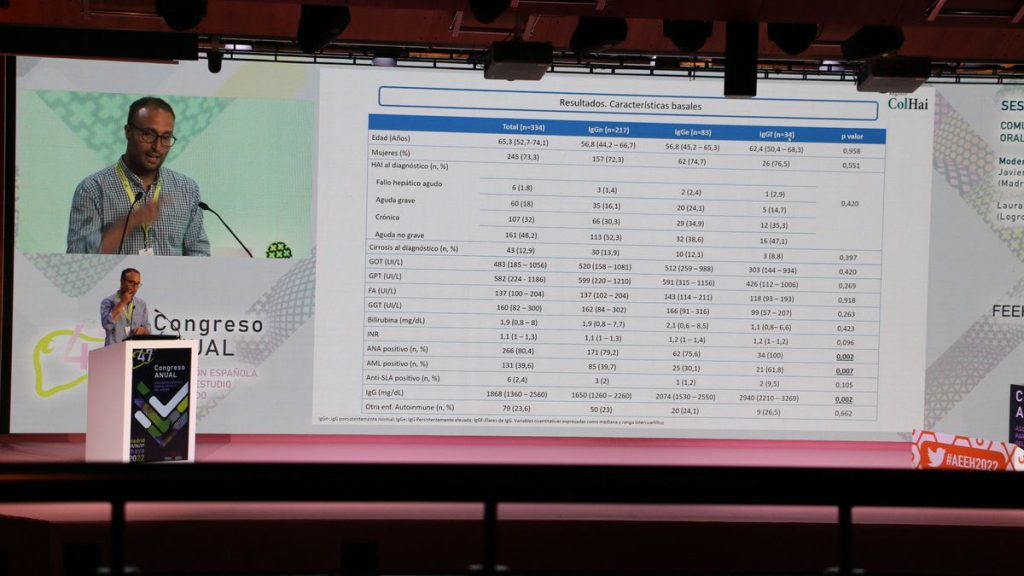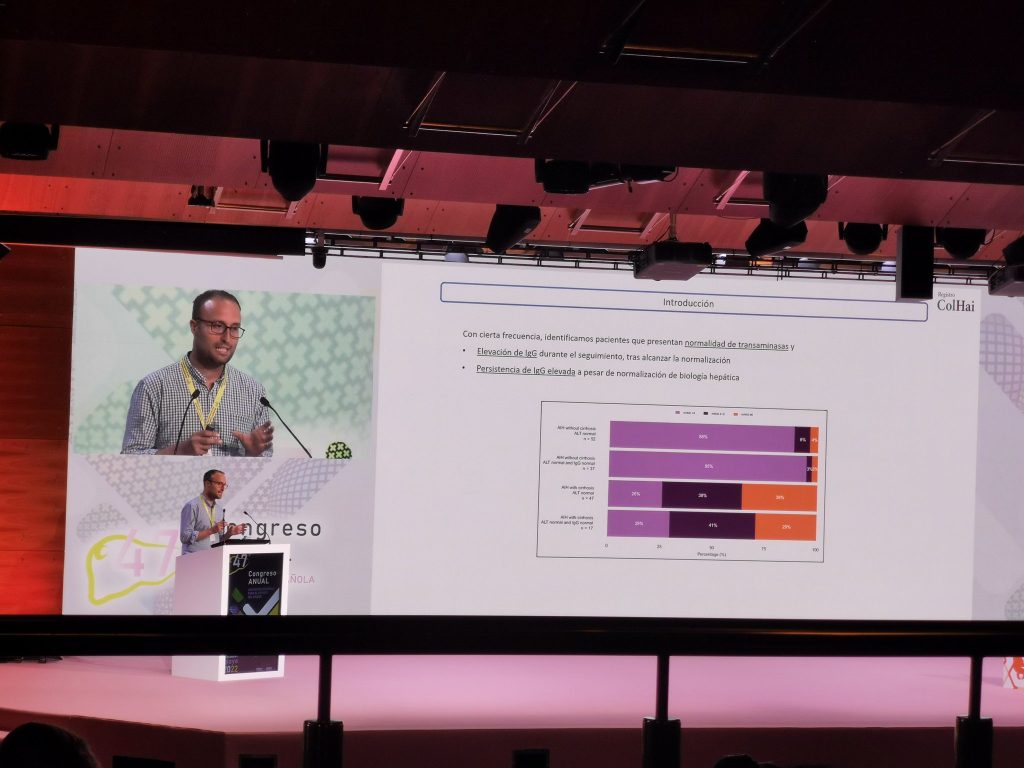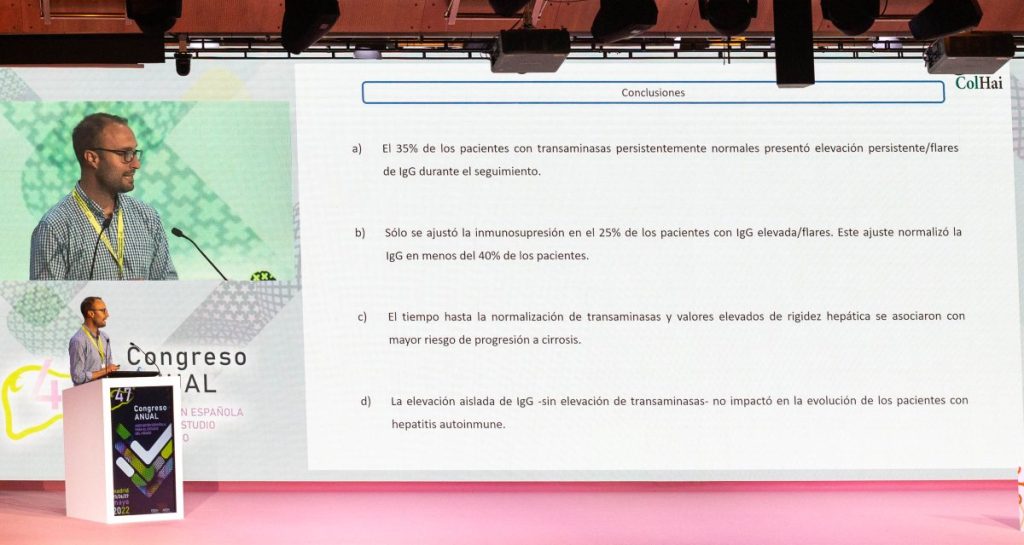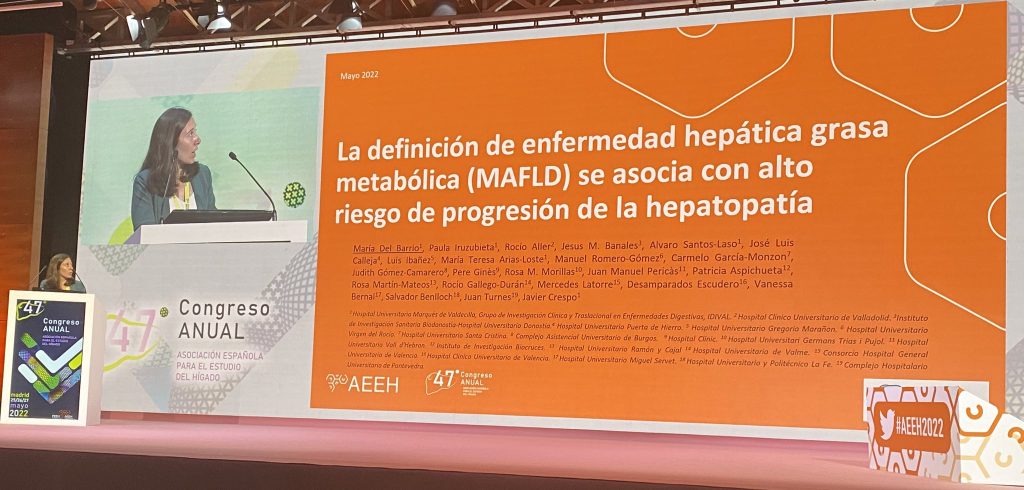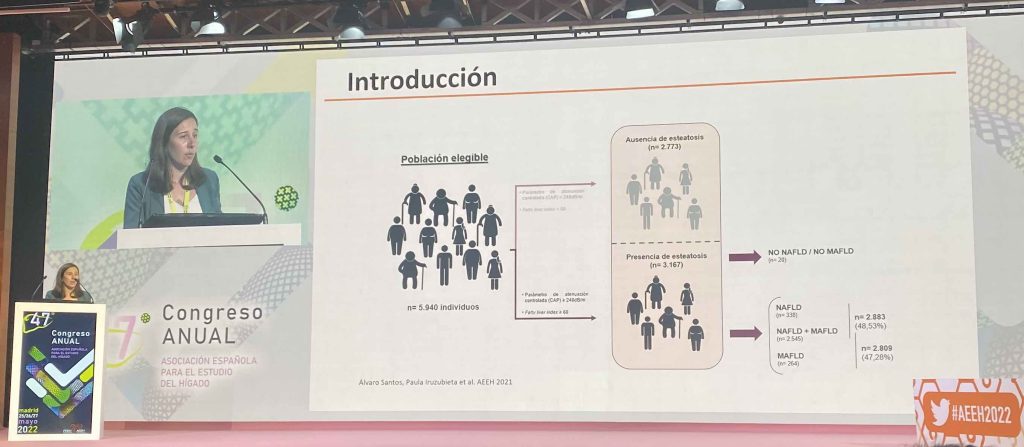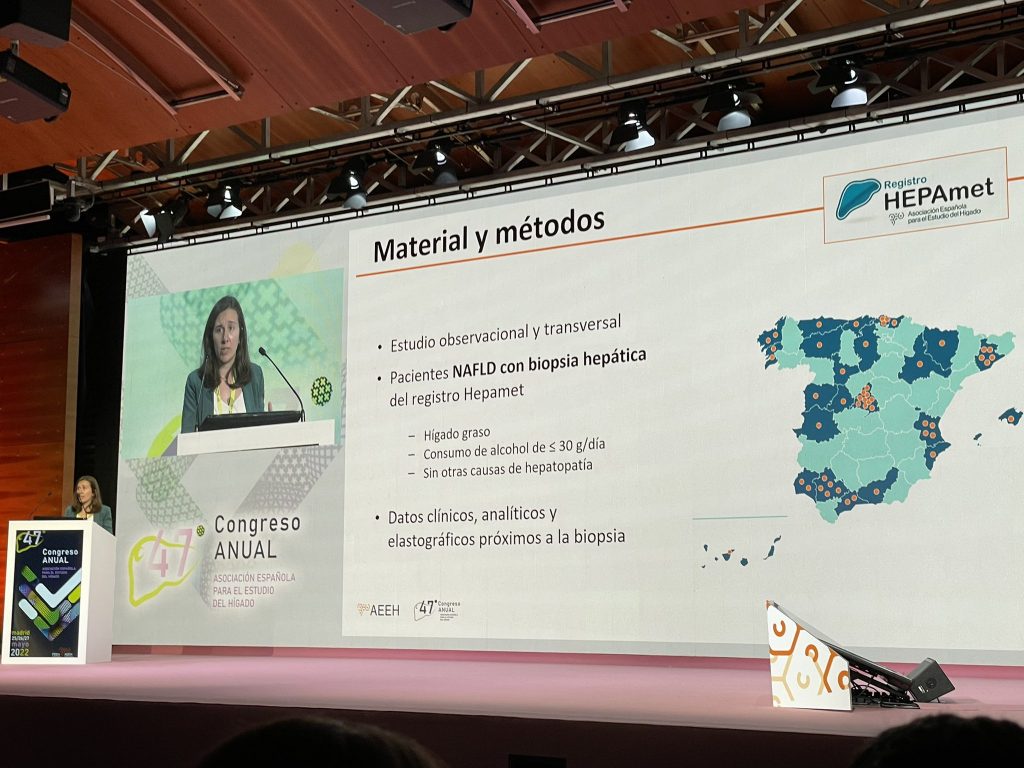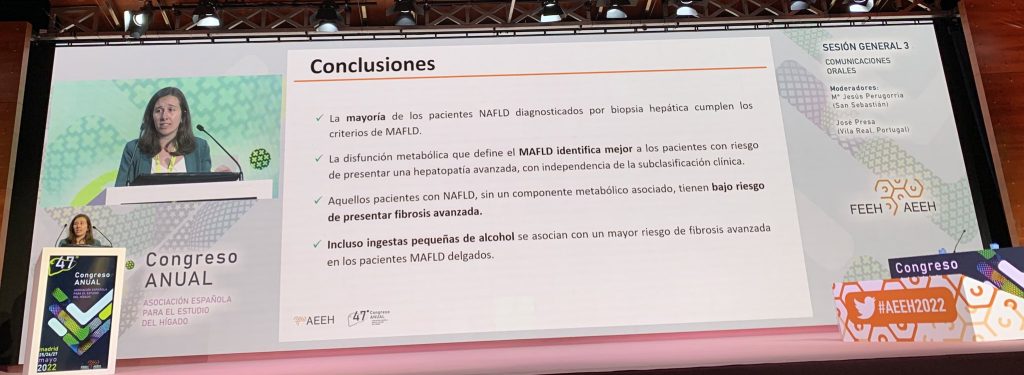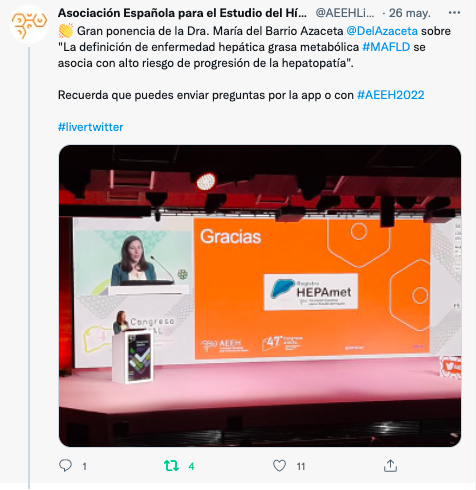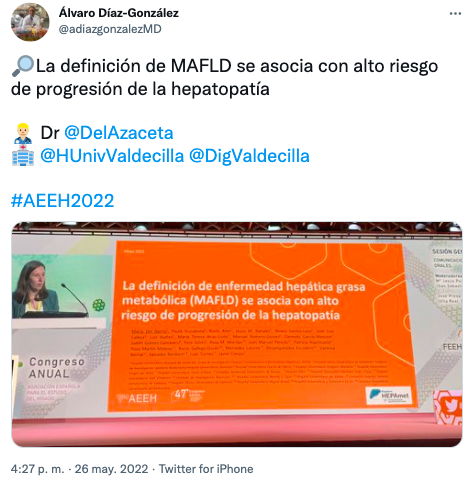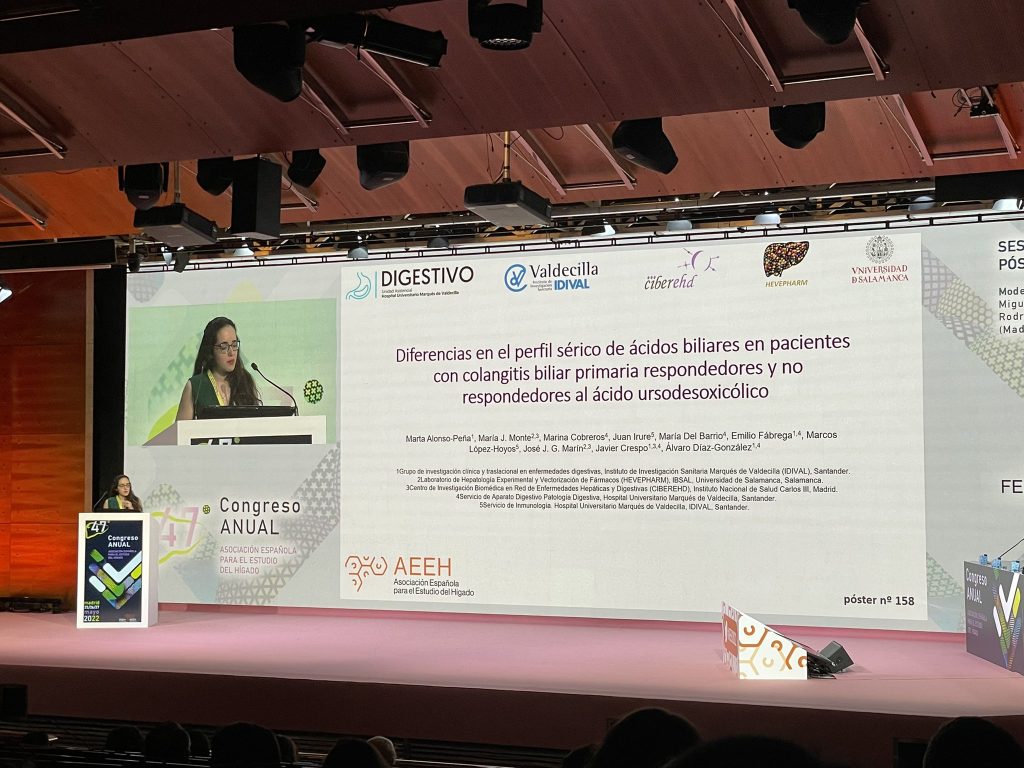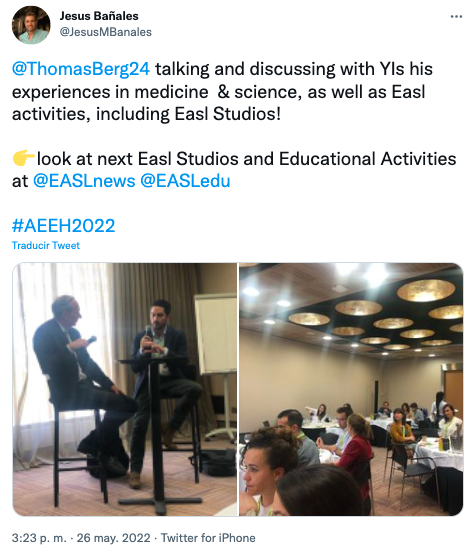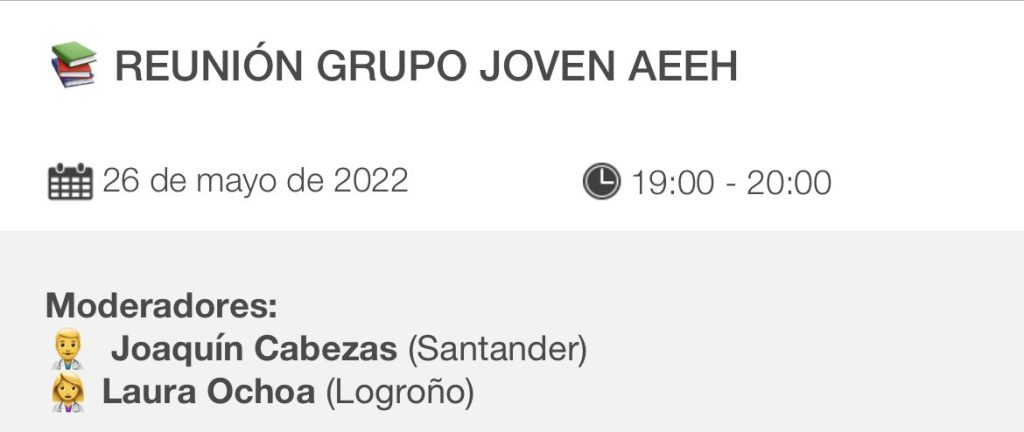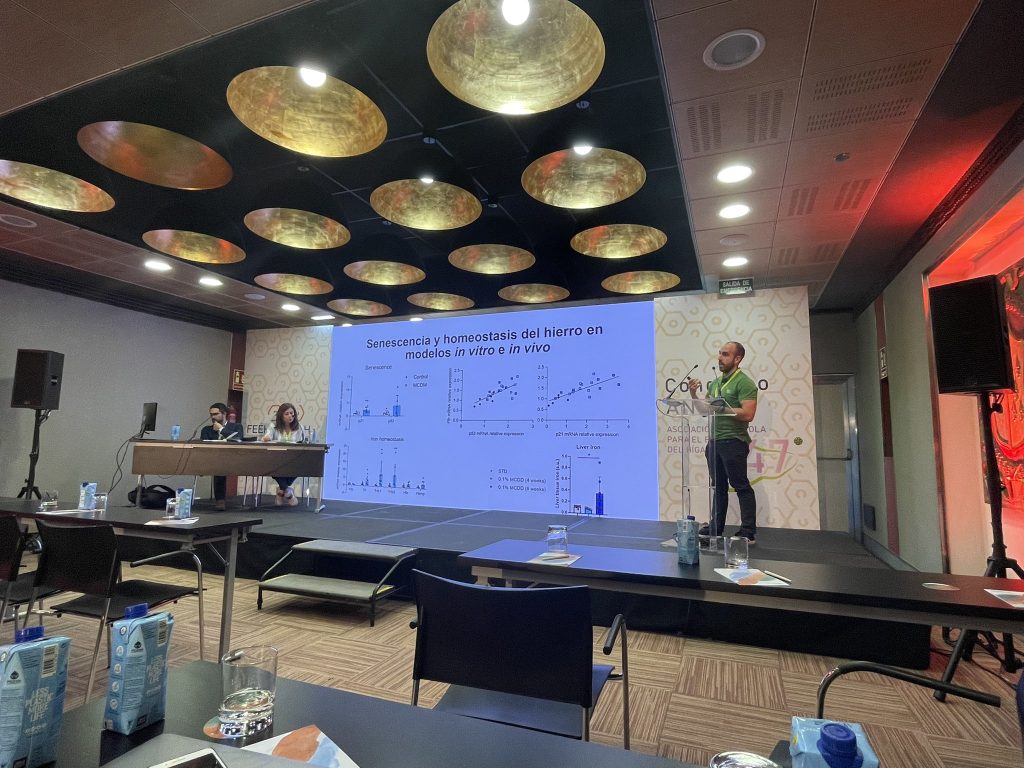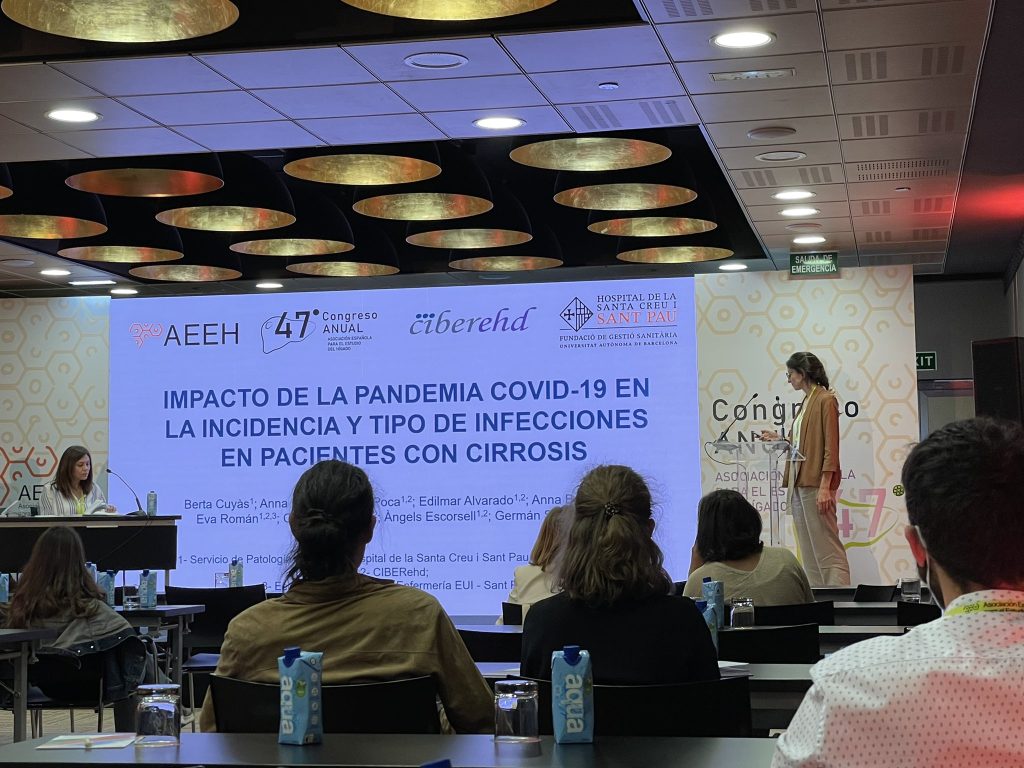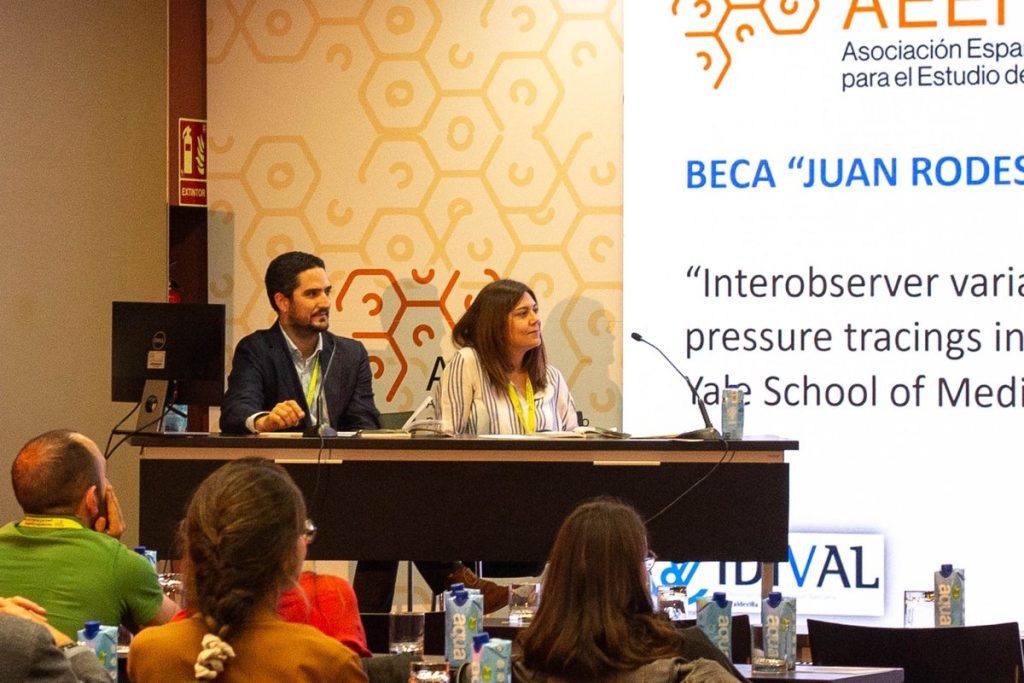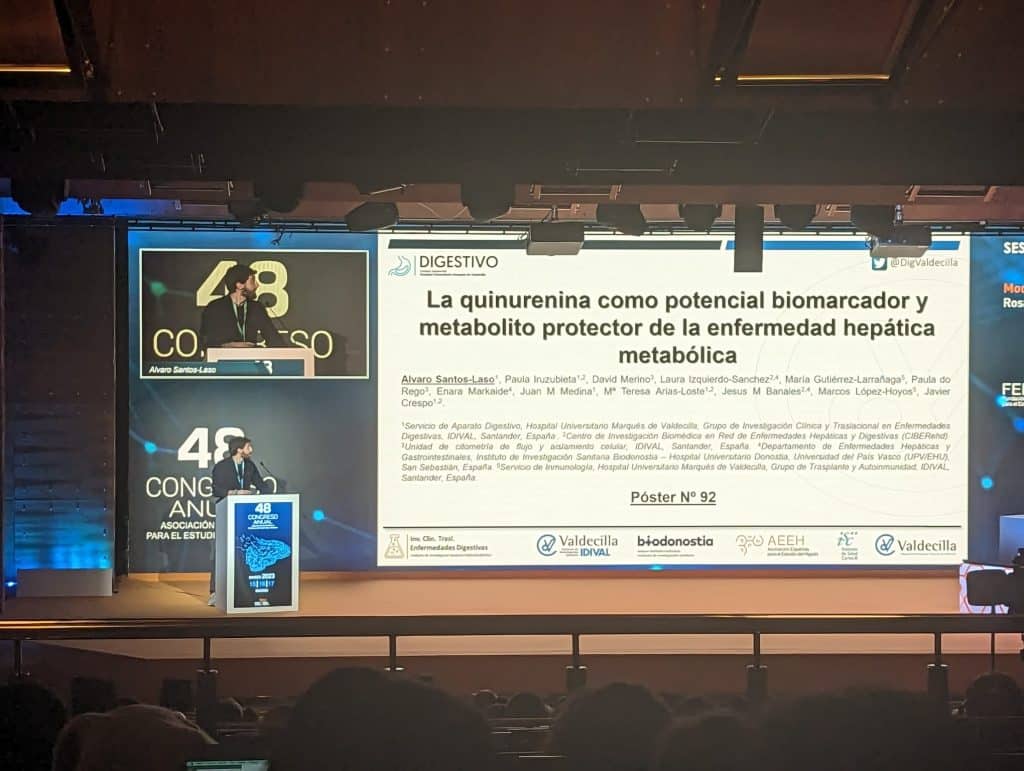
Ponencia del Dr. Álvaro Santos Laso en la Sesión Póster Blast del 48º Congreso Anual de la Asociación Española para el Estudio del Hígado (AEEH) mostrando que la quinurenina, un metabolito derivado del metabolismo del triptófano y regulado por la composición de la microbiota intestinal, puede representar un potencial biomarcardor no invasivo de la enfermedad hepática metabólica y una potencial estrategia terapéutica para dicha enfermedad mediante la modulación de sus niveles hepáticos. Esta interesante propuesta presentada por el Dr. Santos, se fundamenta en la existencia, tanto de mayores niveles serológicos de quinurenina en pacientes con enfermedad hepática metabólica como de una correlación positiva y significativa de estos niveles con algunos parámetros elastográficos (i.e., CAP y rigidez hepática), a la vez que el tratamiento con quinurenina de modelos in vitro de enfermedad hepática metabólica reduce la acumulación de lípidos y mejora la función celular. Estos resultados han sido generados gracias a la obtención de un proyecto financiado de manera competitiva por la Fundación Instituto de Investigación Marqués de Valdecilla (IDIVAL) en su convocatoria Next generation Valdecilla 2021 (Cod: NVAL21/28)



